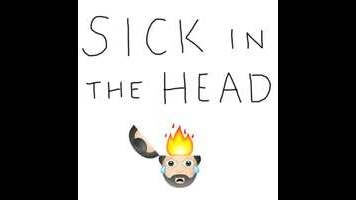Judd Apatow meets his idols, talks shop

Judd Apatow acknowledges a couple of times in this collection of interviews with famous comedians that people sometimes think his movies are too long. And while that’s probably true, it’s also hard to figure out where to nip and tuck The 40-Year-Old Virgin or Knocked Up; as a director, Apatow builds little worlds and populates them with characters rich enough that none deserve short shrift. If that means your ass gets a little tired from sitting in a theater seat too long, that might be more your problem than his.
Same goes for Sick In The Head: Conversations About Life And Comedy, which spreads 37 interviews over nearly 500 pages, but rarely drags. (Also, unlike one of his movies, it’s easy to parse out over days or weeks.) Apatow, who’s had a miraculous career as a writer, director, producer, mentor, stand-up, and more, reveals as much about himself as he does about his subjects, who include everybody from Adam Sandler to Eddie Vedder to Steve Martin. The very nature of several pieces in the collection reveals Apatow’s comedy-nerd bona fides: As a teen, he would interview comedians for a radio show that only half-existed, grilling them more for his own use—he wanted to be them—than for his tiny audience.
So Jerry Seinfeld, pre-fame, spells out his career goals for a young Apatow way back in 1983. Jay Leno, once the darling of his fellow stand-ups and still a hero to Apatow, is unceasingly kind around the same time. Harry Anderson, just before the massive success of Night Court, reveals his rough background. Sandra Bernhard, all ego and talent, has no guard up whatsoever when talking about King Of Comedy. It’s no wonder that Apatow was inspired to continue: The artists he was drawn to were hacking a path of their own, and it surely looked amazing.
Naturally, the more contemporary talks are a bit more revealing; Apatow actually gets his old roommate Adam Sandler—who he says was destined to be a star—to speak candidly, something Sandler doesn’t do all that often. (He also got a rare, graceful dramatic role out of Sandler for Funny People, so maybe it’s not surprising.) And he’s most eager to talk to—and about—Garry Shandling, who he credits for a large chunk of his career and outlook: Both are massively creative perfectionists also crippled with a self-doubt that manifests more in conversation than in their work. More than once, Apatow references his own therapy in Sick In The Head, nodding to an idea that’s been explored in hundreds of comedy podcasts and in Kevin Pollak’s recent documentary Misery Loves Comedy.
But somehow, and maybe this isn’t all that surprising, Apatow doesn’t dwell on the downside. Though he understands that his desire to create might spring from a need to please the father who had comedic aspirations, or from an unhealthy urge to be accepted, he’s also clearly in love with the act of creating. Though there’s an undercurrent of nervous tension and self-effacement throughout Sick In The Head, it doesn’t disguise the thing that really drove Apatow to start interviewing his heroes as a kid—a bone-deep love of comedy, and an accompanying thirst to do it himself.